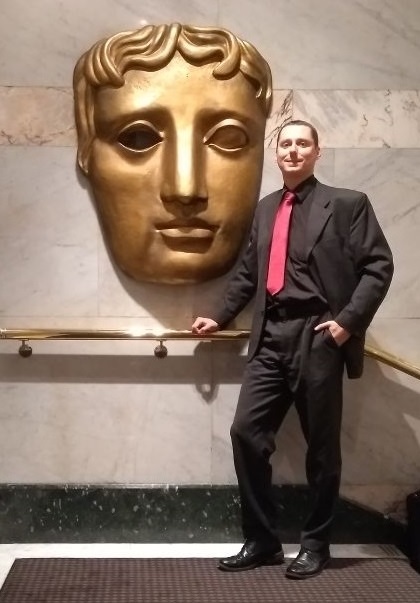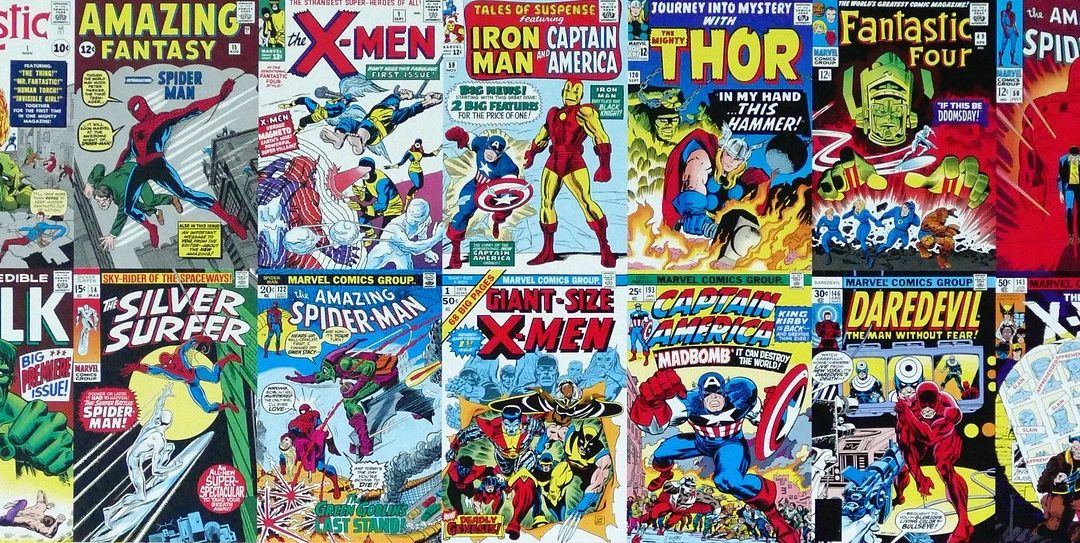
by John | Jun 14, 2019 | Writing Insights
The fundamental thing that a script should do is tell a great story. Hopefully, that’s not a contentious point – we go to the movies or turn on the TV because we want to be entertained! Whether it’s an adventure, an emotional drama, or a horror, the story is what keeps people hooked. With that in mind, it’s easy to focus on the things that are always visible: plot points, characters, and dialogue.
But it’s important not to forget that the very best stories have layers. Underneath the surface, they have something more to say about life. If you ignore this second layer – if you ignore themes, and forget to include one (or more!) in your script, you’ll be doing yourself a disservice. They might not be visible or obvious, but they’re extremely important.
At the end of the day, it’s the theme that will most touch an audience and make them remember your film long after they’ve seen it. Anyone can string gunfights, explosions, arguments, and witty dialogue together, but if you can say something unique and profound that no-one else can say, it’ll really make you stand out.
It’s important to note that the theme is not the same as the concept of your script. Your concept or premise is the idea that drives your story; your theme is the message that it is trying to convey through that idea.
So for example, in David Lean’s classic film THE BRIDGE ON THE RIVER KWAI, the concept is that a rule-obsessed British colonel helps his Japanese captors to build a railway bridge, while being unaware of an Allied plan to blow it up. The themes, however, revolve around the absurdity of the idea that there can be rules in warfare and that honor can exist in such a situation.
 These themes are never explicitly stated, but they’re clear from very early on, as soon as Colonel Nicholson (Alex Guinness) takes out his copy of the Geneva Conventions and attempts to show it to the uncaring commandant Colonel Saito (Sessue Hayakawa) to protest that his officers can’t be put to work because it would be in breach of law. And later on, Nicholson even forbids his men from trying to escape the POW camp because, having been ordered to surrender, escaping would be in breach of their orders!
These themes are never explicitly stated, but they’re clear from very early on, as soon as Colonel Nicholson (Alex Guinness) takes out his copy of the Geneva Conventions and attempts to show it to the uncaring commandant Colonel Saito (Sessue Hayakawa) to protest that his officers can’t be put to work because it would be in breach of law. And later on, Nicholson even forbids his men from trying to escape the POW camp because, having been ordered to surrender, escaping would be in breach of their orders!
This theme – of the absurdity of the rules of war – is difficult to express in a single, memorable sentence. It’s always there, though, in every scene of THE BRIDGE ON THE RIVER KWAI. It leads us through the story from start to finish.
Knowing what your theme is before you start writing (or at the very least, during writing) is immensely helpful in this regard. If you don’t know what message you want to express, your story can end up wandering all over the place because it doesn’t have any guidance; a strong theme, on the other hand, can help to keep it on track.
So there are a lot of good reasons to make sure your screenplay’s themes are clear. It will help audiences to remember your work, making you stand out as a writer with something unique to say, and keep your story on track.
It will also help to keep us script analysts engaged. Make us use our brains rather than just dealing with things on a shallow level, and we’ll keep reading – and if you can get people to keep reading your script, page after page, then unsurprisingly you’ll achieve success in this industry!
Looking for more help on writing your script? Click here to take a look at more of our Writing Insights articles!

by John | May 17, 2019 | Updates, Writing Insights
Writing a script is hard work, but getting a script turned into an actual movie can be even harder. There are all sorts of obstacles standing in the way, not least the key decision-makers and producers who will actually be responsible for the whole project. So how do you get these people to say yes to your work?
One of the most important things that a lot of writers forget about is making sure that their script is commercially viable. Caught up in so many great ideas, they write whatever comes to mind with no thought for cost – but if the film unlikely to make a profit, then a producer is unlikely to want to back it. After all, their job may well be on the line!
Here are some tips to make your script more commercially viable…
- Ask yourself who is going to go and watch your film. Who is this going to appeal to? Who is your target audience? These are the kind of necessary questions that producers ask all the time; if you find that you’re not certain of the answer, then it might be time to have a rethink.
- Reduce the number of locations. By having all the action take place in only a few places, you’re massively reducing costs. A great example of this is RESERVOIR DOGS, which was predominantly set in an empty warehouse.
- Another way to reduce costs is to tone down the action. You might have some great set pieces planned out in your head, but every stunt takes time and money to plan and perform. Can you cut the helicopters out? Can you have only one explosion instead of three? The scene doesn’t have to always to be loud to be exciting!
- On a similar note, cut down on the crowd scenes. Extras have to paid and fed – each and everyone of them is costing the production money. If possible, even having a small cast of two or three is even better – that means paying even fewer actors!
- A lot of Hollywood blockbusters seem to be overloaded with special effects these days, but they don’t come cheap. They might be an unavoidable cost in science-fiction and fantasy, but see if you can find a way to cut down on them.
In short, when the budget is small and there’s a clear audience, producers are much more likely to say yes to your work. A small cast, a handful of locations, small-scale action (or none whatsoever) are all things that can help on this front, and give your script the best chance of thriving in a competitive industry.
PARANORMAL ACTIVITY is a great example of film that does this well. There is always an audience for horror films, and by keeping its costs so low, it became the most profitable film ever made based on return on investment, making an impressive $193 million off a budget of just $15,000.
So when you sit down to write, make sure you think first about the commercial side of things – specifically, whether there’s enough of an audience for your script to claw back the money that will be used to make it. That’s part of the key to making your way as a successful screenwriter!

by John | Apr 26, 2019 | Writing Insights
In our latest Writing Insights article, Script Analyst Edward Smith shares his insights on the things you should think about before you start writing. Here’s our checklist before you start putting your ideas down on paper…
Suddenly it hits you – a new idea for a script! There’s nothing more exciting than this moment. Unable to contain yourself, you rush to your computer (or typewriter, if you prefer to do things the old-fashioned way) and start to type –
Wait a minute!
Yes, you heard us – wait. It can be a hard thing to do when all you want to do is sit down and write, but planning things out in advance, and making sure that you’ve got everything you need, can save you a lot of time further down the line. There’s nothing more frustrating than reaching the end and realizing you made a mistake right at the beginning – and it’s going to mess everything up.
So, here’s our checklist for when you’re writing a new script. Get things right before you start writing, and your job will become a whole lot easier…
- Is this concept really as unique as you think it is? Sometimes we’re inspired a bit too much by the stories we love the most. There’s nothing wrong with going with a proven formula, but make sure your work has a unique selling point too.
- Don’t just think about how you’re going to start your script – think about how you’re going to finish it as well! If you don’t know where the story ends, it’s easy to run into trouble by taking a wrong turn in the story before you even realize it. Figure out your destination before you take the first step to make sure you head off in the right direction.
- What’s the theme of your story? We read a lot of scripts that tell a strong story and are underpinned by great ideas, but without a theme they lack purpose. Don’t just thrill us; make us think as well. Give your script focus by giving it a theme!
- Make sure you know your characters. Their actions should dictate where the story goes, rather than the story dictating their actions; it’s frustrating when characters behave unnaturally just to move the plot forward. Head off this problem by building up a detailed knowledge of them before you start.
- Ultimately, the purpose of a screenplay is to be turned into a film – and that means producers need to see it as a sound investment. Take time to think about the commercial potential of your project – the audience who will go to see it and the costs involved in making it. If it doesn’t look like it’ll make a profit, it might be worth making some changes.
Once you’ve thought all this through, it’s time to start writing. But you know what? For the all the careful thought you’ve put in, there’s one other thing you shouldn’t forget…
Let the story take you where it needs to go! You’ll discover new and exciting ideas as you write, and you shouldn’t feel that you can’t explore them just because you’ve already planned everything out.
Be flexible with your writing. Be playful. Experiment.
Now get writing!
Found this useful? For more Writing Insights from WriteMovies, click here to see our full archive of articles!

by WriteMovies | Feb 8, 2019 | Highlights, Ian Kennedy, Writing Insights

Since it’s their results week too as we publish this, here’s a pic of Ian Kennedy, our Director of Worldwide Development, at BAFTA for a recent meeting with our founder Alex Ross!
Announcing results is the tough bit… especially at the Quarter-Final stage, where we have the most decisions to make, and the most people’s to disappoint about their writing submissions. At WriteMovies we make it our job to constantly open a door for writers and push their work to the next level, and take the ones that are ready into the international industry – but everyone is starting from a different place and whatever level a writer reaches they always have further steps to take to succeed and sustain themselves in the industry. To help you understand our logic and tips for how to make your work stand out to us, our Director Ian likes to write articles about “What Your Writing Has Been Telling Us” over this time. (more…)

by John | Dec 14, 2018 | Movie Reviews and TV Reviews, Writing Insights
Alfonso Cuarón’s latest film, ROMA, has been getting all kinds of acclaim, winning the Golden Lion at the Venice Film Festival and earning three Golden Globe nominations already. Guest author Cat Tebo takes a look at what we can learn from it about writing character driven stories…
A lot of new writers fall into the trap of prioritizing plot above all else, losing the characters and, consequently, the “heart” of their story. Ideally, a script should be a marriage between plot and character. The best way to go about this is by developing characters whose objectives and agency are so strong that they inform the plot, rather than characters being used as mere devices for the storyteller to force into the mold of how they think their story is “supposed”to be.
Alfonso Cuarón’s recent film, ROMA, is a perfect example of how a character-driven film should function, with characters so compelling and nuanced that there isn’t room for heavy, convoluted plot-lines or unrealistic story details. Instead, the characters are the story.
A big part of what makes rich characterization so important to story is that the strength of a story lies in the strength of its characters. Characters give stories humanity and, in doing so, a heart. Furthermore, the desires and objectives that drive characters to act are the same ones that should drive the story forward. In ROMA, everything that happens is a result of characters exercising agency and taking action in order to get what they want: it’s one of the most basic fundamentals of storytelling. Plot movement is all about getting characters from point A to point B; if there is no character arc, there is no story.
Fleshing out your characters is often a challenging task. In creating ROMA, Alfonso Cuarón was drawing inspiration from his own childhood, and familiarity no doubt makes for a greater sense of character. Even when writers are creating characters completely from scratch, the influence of memories and experience still plays a part—there is no such thing as objective fiction, and even the most original-seeming thoughts are a consolidation of some kind of previous knowledge.
Still, there are some important character elements to consider when figuring out who your characters are. Ask yourself what their weaknesses are, what their strengths are, how they cope with obstacles, what they need versus what they want, who they appear to be versus who they really are—for every question you ask, you shouldn’t hesitate to ask the inverse of it as well. Doing this ensures that you’re considering your characters from every possible angle and are covering every aspect of them you can.
Concept is usually what sells your story in the beginning, but characters are what make it stick. Likewise,you might be able to grab an audience’s attention with an interesting premise, but you won’t be able to hold it without intriguing characters.
Take a look at more writing insights from WriteMovies by clicking here!

by John | Nov 26, 2018 | Ian Kennedy, Updates, Writing Insights
Feature films tend to get most of the glory among filmmakers, but that doesn’t mean we should ignore short film as a medium! In a new series of Insights articles, Ian Kennedy looks at the benefits of writing in this format.
There’s a reason there’s not just one but two categories for shorts at the Oscars: one for live-action and another for animated. They can be a great way of telling stories that a lot of filmmakers overlook – and that includes writers!
So why write a script for a short film? Why get one made? Well, there are actually quite a few good reasons…
- You’ve got an idea for story that doesn’t suit feature length – sometimes, even the best concept can’t be spun out into a longer screenplay! That doesn’t have to a negative, though. Use the opportunity to tell the story in short form instead.
- To improve your skills by writing under constraint. All writing is done under constraint of some kind – of format, style, etc. – but the additional restrictions of length and budget with short film can be a great chance to prove yourself. Learning to write under constraint can actually be a great way to improve your writing!
- As proof of concept for a feature film. Making feature films is an expensive business, so why not show how well your idea works by making a short based on the same idea?
- To get a production credit. Getting a script produced can take hard work, but if you’ve already got a track record in short films, it can look great on your writing CV and give producer’s faith in your abilities.
- As a personal project – just because you love your idea or are passionate about filmmaking! Be careful, though; if you’re making a short film for personal reasons, make sure that everyone on the production knows what your motives are.
Making a short film brings all sorts of challenges of its own. You’ll still need a unique concept, a well-structured story, and characters that audiences can fall in love with – but you’ve got to get it all into a much smaller space! That’s why it can be such a great test of your skills as a storyteller.
Whatever your reasons for making a short film, make sure you know exactly what they are before you begin, whether you want to use it to take the next step in your career or just because you’ve got a story you’re desperate to tell!
Take a look at our other Writing Insights articles here for great hints and tips on crafting your scripts!

by John | Nov 16, 2018 | Ian Kennedy, Industry News, WriteMovies News
WriteMovies Director Ian Kennedy explores the works of Stan Lee and why superhero stories unleash our imaginations better than any other kind of stories…
At the heart of every superhero story is a central question that fires our imaginations every time, and nobody took it further than Stan Lee. The extraordinary array of well-known characters he brought into the world, which return again and again across many formats and platforms, is testament to that.
Cosmic stories like the creation of the universe are just too big to really relate to as stories, at least in the scientific telling – but many mythologies and religions make these stories relatable by ascribing these vast events to recognisably humanized figures. Gods like Zeus/Jupiter and Odin/Woden are presented like more powerful versions of human beings, able to shape the world with their powers and the sometimes arbitrary logic of their choices and lives; ancient heroes like Hercules and Beowulf are humans but given extra powers or significance. Superhero stories are clearly following in this tradition – and grasp towards almighty powers at times (DOCTOR STRANGE, CAPTAIN MARVEL, The Phoenix in X-Men).
By bringing these forces down (or up – SPIDER-MAN!) to our scale, we get to explore how people like us would act if they were capable of so much more than we are. It’s no coincidence that the modern superhero genre and many of its biggest characters have their origins in the Great Depression – when ordinary people were powerless against global economic forces. The flimsy justifications that the storytellers find for giving these figures their powers, are really just an excuse to let our imaginations run riot, and are quickly delivered and forgotten about in most of the origin stories, so that we can get onto the fun and exciting bit.
Nobody grasped the potential of these stories more, or took them further, than Stan Lee and the teams of writers and illustrators and filmmakers who he has worked with – the list of now-famous characters he created is vast. But at the heart of all these stories is just one very powerful central question, which is deceptively simple but really fires our imaginations. “What would you do if you could…?”
Superheroes and supervillains both play out these powers and their potentials and hazards throughout every story. Here are some of our favorites at WriteMovies from Stan Lee’s creations.
If you could… move and sling webs like a spider!
On the one hand, Peter Parker is just an ordinary teenager, worried about the same kind of things as any other teenager – on the other, he finds himself equipped with the awesome powers that make him SPIDER-MAN. We can all relate to his troubles at school while rooting for him to become a true superhero as he learns an important lesson: “with great power comes great responsibility”.
If you could… fly around in an armored suit!
IRON MAN’s Tony Stark is basically another Bruce Wayne, but with much quirkier personality. As an outright arms manufacturer, he’s also more morally compromised than Wayne. While Wayne has an orphan sob-story, Stark has an ego. And unleashing an ego that size, on a suit that powerful, creates excellent conflict throughout – so much so that in CAPTAIN AMERICA: CIVIL WAR, he can fight against many of our other heroes, without losing our empathy.
If you could… use you other senses to fight despite being blind!
DAREDEVIL has found immense success on Netflix, and with good reason. Matt Murdock is a deep, conflicted character, living in a world of darkness after being blinded as a child. With his other senses heightened, the Devil of Hell’s Kitchen is so captivating because he doesn’t just overcome his physical disability but turns it into a strength, proving that anyone – even someone who is blind – can become a superhero.
If you could… shrink to the size of an ant!
Scott Lang may be a former criminal, but his desire to reform himself makes us support him all the same. As ANT-MAN, he proves that even the smallest person can make a huge difference – and all while showing us a crazy world around us too small for us to even see!
Stan Lee has given us plenty of amazing creations over the years, and the world is a lesser place without him. Take a look too at our thoughts on two films based on his other superheroes, THOR: RAGNAROK and BLACK PANTHER!

 These themes are never explicitly stated, but they’re clear from very early on, as soon as Colonel Nicholson (Alex Guinness) takes out his copy of the Geneva Conventions and attempts to show it to the uncaring commandant Colonel Saito (Sessue Hayakawa) to protest that his officers can’t be put to work because it would be in breach of law. And later on, Nicholson even forbids his men from trying to escape the POW camp because, having been ordered to surrender, escaping would be in breach of their orders!
These themes are never explicitly stated, but they’re clear from very early on, as soon as Colonel Nicholson (Alex Guinness) takes out his copy of the Geneva Conventions and attempts to show it to the uncaring commandant Colonel Saito (Sessue Hayakawa) to protest that his officers can’t be put to work because it would be in breach of law. And later on, Nicholson even forbids his men from trying to escape the POW camp because, having been ordered to surrender, escaping would be in breach of their orders!







